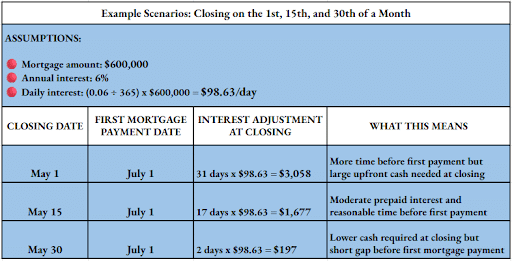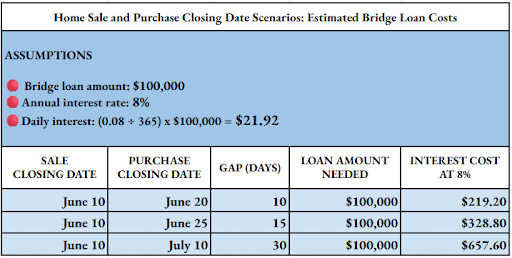Table of Contents
A question to all homebuyers: what aspects should you usually negotiate in the buying process? We are certain most of you would say “purchase price” of the houses for sale in Welland as your answer. Certainly, you should focus on negotiating the purchase price and getting the best deal on your new home. However, along with the sale price, you should also discuss the closing date and pick one that works for you.
But is pushing for a specific home sale closing date really that necessary? We will break it down for you below.
Your Closing Timeline Impacts More Factors Than You Think
The timing of your closing in Welland can quietly tip the scales in your favour or add unexpected challenges. Here are the key aspects of your home purchase that the closing date can impact –
1. When Your Mortgage Payments Begin and How Much Interest You’ll Owe
Your closing date directly determines when you start making mortgage payments and how much interest you will owe upfront. In Ontario, mortgage payments on houses for sale in Welland don’t start right after closing. Instead, your first payment is usually due on the first day of the month following a full month after the closing day.
For example, if you close on March 12, you add a month, bringing you to April 12. Your first payment will then be due on May 1. At first glance, it might feel like you are skipping a payment, but that’s not the case.
In Canada, mortgage payments are made in arrears, meaning each payment covers interest for the previous month. At closing, you will need to cover prepaid interest from the day you take ownership to the end of that month. Hence, closing on March 12 means paying interest for the period from March 12 to 31 upfront on the closing day.

2. Your Cash Flow and How You Manage Upfront Costs
Closing day can be financially intense. After all, you have to make some of the biggest payments of your home-buying journey on the closing day.
You can make these expenses more manageable by aligning your closing with your cash flow. For example, scheduling your closing day after a payday can reduce financial strain.
3. Overlap Between Your Rent and Mortgage
If you are currently renting, your closing date should ideally align with the end of your lease. Closing too early could mean you are paying rent and mortgage simultaneously. On the other hand, closing too late could leave you without a place to stay if your lease ends before your move-in date.
4. Whether You’ll Need Costly Bridge Financing
If you are selling your current home while buying a new one, the order in which these closings happen also matters significantly. If your new home closes before your old one sells, you might face a financing gap.
Bridge financing usually exists to cover that gap. This short-term loan allows you to access the equity from your current home before you officially sell it. While bridge loans can be helpful, they come with high interest rates and fees.
Hence, if your new home closes two weeks before you sell your current home, you will pay interest on the bridge loan for those two weeks. On the other hand, if both transactions happen on the same day or if your sale completes before the purchase, you may avoid bridge financing entirely.

5. How Utility Bills and Property Taxes Are Divided
The closing date decides how much of the utilities, property taxes, and condo fees you pay versus the seller. In Ontario, each party pays a prorated share of these costs for the time they owned the property. Let’s suppose the seller has already paid property taxes for the entire year, but you take repossession in July. In this case, you must reimburse them for your share from July to December.
Usually, these adjustments aren’t huge amounts. However, they can still change your final closing costs and knowing in advance helps avoid surprises.
6. The Cost and Availability of Moving Services
Moving companies are in high demand on certain days. For instance, on Fridays, mid-months, and long weekends. If you close during those peak times, you may struggle to find a mover. Even if you do find a mover, you might have to pay a premium.
7. How Smoothly Your Lender and Lawyer Can Work
In Ontario, the end of the month is a busy time for both lawyers and banks. This surge in transactions can lead to delays, last-minute changes, or rushed paperwork.
Mid-month closings are generally calmer. During these non-peak times, your legal and banking teams can focus more on your file, handling any unexpected issues promptly.
Some Home Closing Timelines Are Riskier
Some closing timelines carry a higher risk of delays, costs and last-minute hiccups than others. Here are some of these riskier timelines you will want to think twice about –
1. Less than 30 days from offer acceptance
Closing in your new Welland house under 30 days leaves very little breathing room. After all, mortgage approvals, lawyer reviews, title searches, and home inspections all take time. When you rush, you increase the chance of errors, missed paperwork, or costly penalties.
2. End of the month
At the end of the month, banks, lawyers, and movers handle a high volume of closings. Hence, delays are common, and you will also have to pay the first mortgage payment sooner than expected.
3. Beginning of the month
The first few days of the month are busy too, thanks to lease turnovers and early payment processing. Closing during the beginning also means paying more for prepaid property taxes at closing.
4. Fridays and Mondays
On Fridays, everyone rushes to finish before the weekend, and early office closures can cause delays. On Mondays, staff deal with Friday’s backlog, which can slow everything down.
5. The day before or after a holiday
Statutory holidays and long weekends mean office closures. Hence, the days before and after are packed with catch-up work, increasing the likelihood of delays and stress during your closing process.
Final Advice: When Should You Set Your Closing Date in Welland
Let’s wrap up the blog by discussing the most advantageous window to close on a home in Welland. Typically, one of the best windows to aim for is mid-month, between the 10th and the 20th. During this time, banks, lawyers, and moving companies usually experience a lighter workload. Hence, your paperwork, mortgage approvals, and moving logistics are less likely to face delays.
Choosing a day in the middle of the week, such as Tuesday or Wednesday, can also work. These days give you extra buffer time to address any unexpected issues before the weekend.
Ultimately, the ideal closing date depends on your financial readiness, personal schedule, and overall comfort level. Take the time to sit down with your family and discuss when all the moving pieces, from finances to logistics, align smoothly. Remember, a well-choosen closing date can make your home-buying experience smoother and less stressful.
